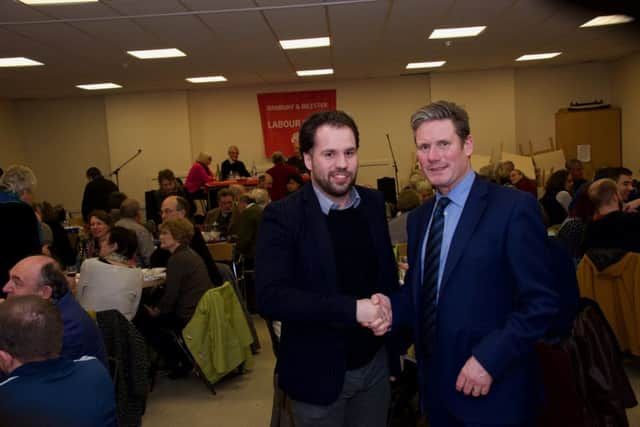Shadow Brexit minister visits Banbury to talk about life after the EU


The shadow ‘Brexit’ minister, speaking at a fundraising event for Banbury and Bicester Labour Party, said the past weeks have been the toughest he has had.
Mr Starmer said he had accepted the vote, as had Labour, but he said Parliament will still have a huge amount of control over the final deal, with issues such as immigration and the UK’s tax status needing primary legislation.
Advertisement
Hide AdAdvertisement
Hide AdStarmer, a former human rights’ lawyer and Director of Public Prosecutions said:” “That verdict had been coming for years and was the result of political failures on all sides. The phrase ‘take back control’ resonated with many and we need to understand why. People are living in fragile employment situations; they can’t control rising costs, there have been massive cuts to public services and people feel they have little control of their environment.
“And there is the key issue of immigration - the pace of change in many communities as a result of immigration was too great and there is a profound sense there is too much influence and wealth concentrated in the south-east.”
Mr Starmer said Labour is working to address the issues coming out of the referendum.
He said, “I’ve been around the country to talk about the effects of immigration and met many business people. When I asked them what was the biggest inhibitor to success the vast majority said, ‘There is a skills shortage right across the UK’.
Advertisement
Hide AdAdvertisement
Hide Ad“That’s why Labour needs to understand and address the issues coming out of the EU Referendum result and develop an industrial strategy that addresses skills shortages and the impacts of globalisation, as well as delivering quality public services.”
“We cannot afford to lose another election if we want to change society for the better. We have to promote a vision of a better future for our country and offer a Labour Party which is ambitious and radical but also has the trust of the electorate,” he said.